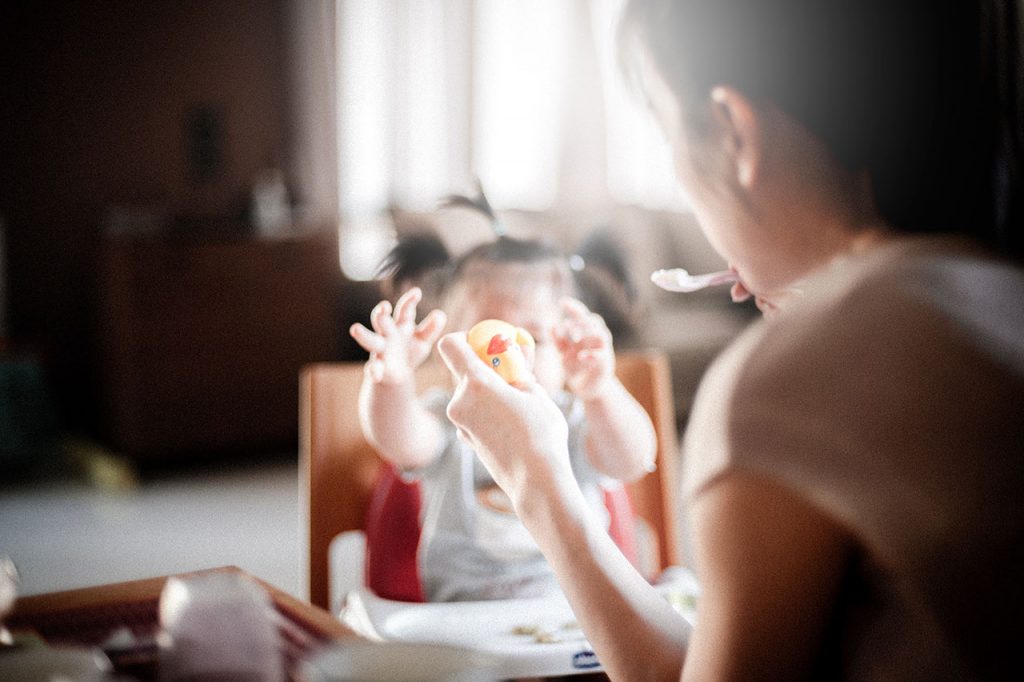Sarah doesn’t remember the last time she brought her mum out to celebrate Mother’s Day.
While restaurants will be packed with families tonight paying tribute to the most important woman in their lives, a low-key affair at home would be the best thing that Sarah can hope for.
Her mother is diagnosed with agoraphobia, an anxiety disorder which entails a fear of crowded places. She spends most of the time holed up at home alone, and often drugged up on medication that she also takes for depression and bipolar disorder.
At best, her sleepy state causes her to do things slowly. At worst, a simple conversation descends into emotionally charged chaos.
So dinner at a fancy restaurant is certainly out of the question. There also won’t be any posts on Sarah’s social media to commemorate the occasion.
The reason why she doesn’t talk about Mother’s Day like most people do is that there’s really no need to.
“For me, Mother’s Day is just a culmination of the year’s work that I’ve put into looking after my mum. Every week requires effort,” Sarah says.

But Sarah, who is 26, has had to live with her mum’s condition for nearly two decades. Throughout all the important stages in her life, whether it was puberty or taking the all-important PSLE, O and A Levels, she’s never received the nurturing guidance that a daughter needs from her mother.
Rather, her childhood is littered with memories of struggling to cope with her mum’s emotional outbursts.
“I was too young to understand what was wrong with my mum. She was crying a lot, and because she was a single parent and I was the only child, I was forced to mature very quickly to be her emotional support,” Sarah tells me.
“It’s hard when you’re trying to grow up, but your mum wants somebody to throw her emotions at and you have to buck up. At times, I also felt it was unfair for her to say things like ‘I need you more than you need me’.”

Majority of mothers who suffer from mental health issues also do not realise that their conditions have an impact on their children, adds Evonne Lek, director of Reconnect Child and Family Therapy. For instance, if they are feeling depressed, they may in fact think that they are behaving normally.
Sarah recalls an incident a long time ago that made her realise that she had to be sensitive to her mum’s condition when speaking to her.
Unhappy about the hairdo she had gotten for a family photoshoot, Sarah decided to undo it in the toilet, only to end up making it worse. Her mum was so furious that her money had been wasted, she flew into a rage and brandished a pair of scissors in front of her threatening to cut off all her hair.
“I was terrified and didn’t know what to do, especially with the scissors pointing in my face. As a kid, you don’t really understand the concept about money yet. But looking back, I can completely understand why Mum reacted that way because we were going through tough times financially.”
Extreme mood swings are a common symptom of an underlying mental or emotional condition, Swanie points out. One warning sign is when a parent seems to fluctuate between happy and sad feelings, and lashes out angrily for no reason.
She advises families to openly talk about it and be understanding to the parent who is struggling:
“Let them know that you are noticing these changes, and that you would like to know a little more about them. This communicates concern to them that you are not jumping to conclusions and you want to understand.”

Like Sarah, my mum’s condition has been a significant part of my life. But she hasn’t been clinically diagnosed, which makes broaching the topic at home even more arduous. At times, she seems to avoid facing the reality of her condition.
She is obsessed with cleanliness, and no one in the family is allowed to touch her belongings – not even to take Panadol from her drawer – because she doesn’t want our ‘filthy hands’ contaminating them.
Over the years, this illogical obsession has invaded other aspects of the house. My dad has a fixed spot on the family couch, and he’s relegated to using the tiny toilet in the kitchen so that the sanctity of the master bedroom’s bathroom isn’t violated, among other preposterous house rules.
Living at home feels like being under 24/7 surveillance of a micromanaging prison warden.
And from observing her behavioural traits, I suspect this OCD has led to her developing comorbid depression as well, which includes anxiety and panic disorder.
Because we can’t openly talk about this problem without triggering yet another outburst from my mum, managing her condition revolves around complying with her demands 100 per cent. Step out of line for even one second, like accidentally brushing past the lid of her washing machine, and the rebuking commences.
Children whose parents suffer from mental illnesses are also affected when they take on inappropriate levels of responsibility in caring for themselves or their parents and managing the household.
According to Evonne, in cases like my family’s, accommodating a person with OCD and going along with the requirements of the changes to the lifestyle only feeds into the person’s OCD. It will eventually exacerbate the condition.
It was only last year, after living through this ordeal for 15 years, that I started to come to terms with my mum’s condition. Each time her nagging began, I had to remind myself that it’s the condition speaking, not my mum. But it’s also easy to slip back into a confrontational mode when frustration grows.
Likewise, Sarah says it was tough to embrace the fact that her mum was suffering from a multitude of mental illnesses. Even now, there are times when her mum’s antics would still drive her nuts, “Sometimes it gets so bad that I want to thrash my room, but yet I have to do it quietly because we live in a small three-room flat and the sound of me venting my anger will just further trigger my mum.”
The most difficult times were during her childhood and teenage years. Sarah had to not only manage her mum’s condition at home, but also put up with bullying and teasing in school.
With her mum unable to play the traditional role of a child’s emotional bedrock, she had to quickly build up her defences on her own and find a safety net. This came in the form of a close circle of friends and her biological dad who separated from her mum when Sarah was four.

It’s fortunate—a miracle even—that Sarah’s mental health remains intact considering the circumstances that she grew up under. Psychotherapists I speak to say that children who do not know how to manage living with a family member suffering from a mental illness often end up with a mental health condition themselves.
They also emphasise the importance of therapy, even though it remains a stigma for many families. Swanie says the outdated notion that seeking help is a sign of weakness or “crazy”, and deemed shameful still hinders many from doing the right thing.
“In fact, it takes a lot of courage and maturity to acknowledge that we don’t have all the answers and to reach out for guidance. It’s saying to ourselves ‘I want to take responsibility to for this matter and I want to learn to do better.’ In so many ways, that is strength, not weakness.”

Sarah says her mum would often slip into moments of insecurity, blaming herself for not being able to provide for the family. But she knows that this current mental state is not representative of her mum’s true personality and competence. After all, she was building a successful career before her mental illnesses surfaced.
In the few moments when neither her condition nor medication affects her cognition, Sarah still sees in her mother the woman who loves her deeply and supports her in whatever she endeavours.
“I don’t feel obligated to love my mum. There are times when I just feel like letting go, but at the same time I feel obligated to not give up on her. I love the whole of her as a complex being. I hate it sometimes and I get angry, but I still love her.”


